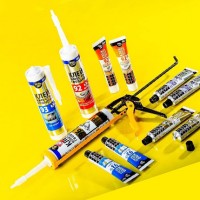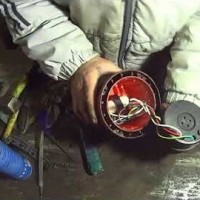Pros and cons of a humidifier for a child: a real assessment of use
Every parent would like to know where the child has a button that turns off his snot, allergies and all kinds of acute respiratory infections.And imagine, there is such a button. It just works intermittently and does not always guarantee 100% elimination of the disease. This button calculates the relative humidity in the room.
To normalize it, special devices are installed - humidifiers. But these devices are not a universal lifesaver and have certain disadvantages. In this article we will talk about the main pros and cons of a humidifier for a child and give some tips on how to reduce the negative impact of this device.
The content of the article:
The effect of low humidity on a child
You cannot look at a child as a miniature adult. Infants, kindergarteners, and even teenagers have somewhat different thermoregulatory mechanisms than adults. Initially, they need more humidified air. Low humidity in the room creates a strong burden on the child's body and leads to serious disruptions in its functioning.
It is completely contraindicated for babies to be in a dry climate, because up to a year they receive the bulk of oxygen through the skin. It has been noticed that in a room with dry air, infants digest milk worse, dysbacteriosis appears, and tics may occur.
If the baby's lips and nasolabial triangle turn blue, this indicates severe hypoxia (oxygen starvation).In this case, you need not only to ventilate the room well, but to increase the relative humidity in the room.
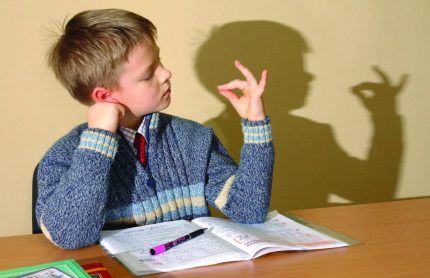
The drier the air in the room, the more liquid the child’s body spends to humidify it to the required parameters, because humidity standards must comply with sanitary and epidemiological requirements.
Due to additional water loss, the mucous membrane dries out, skin problems begin, and immunity decreases, i.e. The child’s body can no longer fully protect itself from the effects of pathogenic microorganisms. Dry air in the room can lead to sleep problems and kidney disease.
No amount of immunostimulants, vitamins or flu shots will help a child if he sits every day in a room with dry air. The child will still get sick, because due to a lack of water in the body, its resistance to bacteria decreases. If at the same time he does not receive plenty of fluids, the diseases will be protracted and will soon develop into chronic ones.
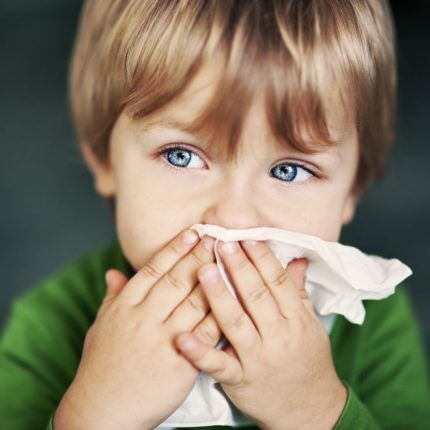
All kinds of gaseous compounds constantly accumulate in the air of a closed room: gases from cooking, polymer fumes from finishing the room, human waste products, etc.
Children who regularly breathe dry air suffer from various infectious diseases more often than their peers.If the air humidity in the room drops to 20%, a small child may even get heatstroke.
Normal air humidity in the apartment
Relative humidity is the amount of moisture in the air as a percentage of the maximum possible. This parameter is invariably associated with the indoor microclimate.
Normal air humidity in the room is a guarantee of safety for the health and well-being of a person of any age. A room humidity of about 40-70% can be considered comfortable. Low humidity leads to the accumulation of dust on furniture and equipment, exacerbation of allergies and increased susceptibility to various viruses and bacteria.
Just a couple of decades ago, people tried to increase the air humidity in the children's room by daily wet cleaning, placing containers of water and regular ventilation.
But standard cleaning (both general and daily) cannot ensure a normal level of humidity in the apartment. Very little time passes, and dry air again accumulates in the room.
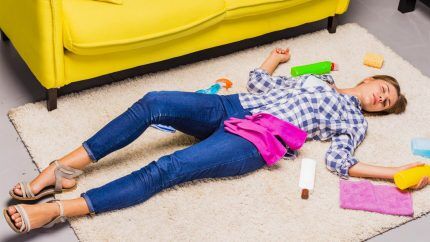
But all folk remedies pale in comparison to the use of a conventional household humidifier. This device is capable of creating a comfortable indoor microclimate in a short time.
All air humidifiers can be divided into:
- Traditional – devices whose operating principle is based on natural (natural) evaporation of moisture. They consume little electricity and are ideal for aromatherapy.
- Steam – devices operating on the principle of evaporation.With their help you can quickly achieve the desired humidity levels.
- Ultrasonic – modern silent units that allow you to set the desired level of humidification. Ultrasonic devices ergonomic, compact and easy to use.
When used correctly, these humidifiers do not have any negative effects on children. Regardless of model humidifiers It is worth using both in summer and winter. In winter, the air in the room dries out due to the radiators, and in the summer, the moisture in it evaporates due to the air conditioners being turned on.
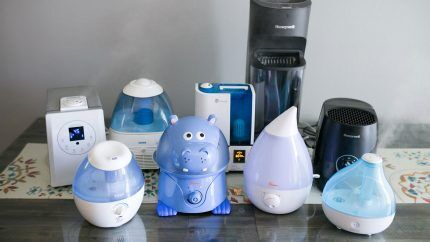
Benefits of a humidifier for children
Humidifiers can optimize a child's thermoregulation processes during sleep and wakefulness. In a room with humidified air, a person feels well-rested and alert. Air humidifiers can have a positive effect on the condition of human skin, hair and nails.
A comfortable indoor microclimate helps to cope with acne, teenage acne and other irritations on the face. Also, a humidifier helps to tighten the pores on the face and soothe the skin after sunbathing.
The use of a humidifier is necessary during outbreaks of acute respiratory infections and influenza. Dirty and dry air in the room can lead to the development of rhinitis, bronchitis and even asthma in a child if any bacteria enters the child's body.
Dry indoor air leads to mucus drying out, which usually removes various pathogenic microorganisms from organs and tissues. This increases the risk of complications. Even a banal acute respiratory infection can develop into pneumonia or meningitis.

An air humidifier weighs down microparticles of dirt, dust, animal hair and pollen, preventing them from rising up. And steam units completely destroy harmful bacteria. Thanks to this, the child’s risk of allergic reactions is reduced. In addition, his quality of sleep improves.
In a stuffy room, a child is often tormented by nightmares, and because of this he screams at night and even wets the bed (we are talking about kindergarteners and primary schoolchildren).
If the room has a normal microclimate, such problems will disappear. The baby will be able to wake up at night without any problems and go to the toilet on his own. In fact, a humidifier can help treat nighttime enuresis.
Other benefits of using a humidifier include:
- destruction of unpleasant odors in the room (due to the fact that all particles that may smell bad fall down along with the moisture that binds them);
- improved blood circulation in the brain (due to this, the child’s attentiveness and performance at school will increase);
- strengthening the immune system;
- elimination of swelling and dark circles under the eyes;
- prevention of eye problems (due to dehydration, conjunctivitis or other inflammatory eye diseases may begin).
But it's important to remember that a humidifier is not a magic solution that will clear the room of dirt in one fell swoop. The device only affects air humidity; it does not absorb or destroy viruses and microbes.
The apartment still needs to be cleaned, dusted, curtains steamed, sofas cleaned and carpets vacuumed.You should also ventilate the room daily.
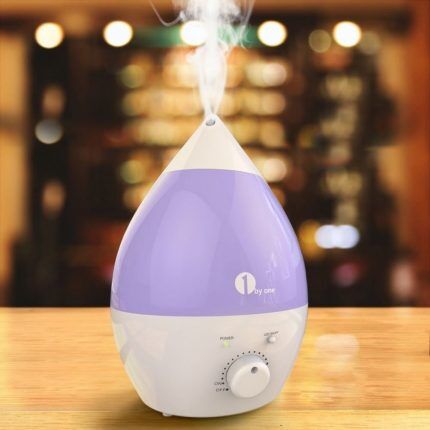
However, it is better not to open the window while the humidifier is operating, so as not to negate its beneficial properties. After all, when the windows and vents are open, the humidity levels in the room immediately begin to fall.
Humidifier damage
An air humidifier is a unique and extremely simple device that allows many to forget about allergies and respiratory diseases, but even in it they manage to find negative features. The nature of the negative impact of a humidifier on the human body depends on the design features of the device.
Negative effects of traditional humidifiers
The safest units are traditional humidifiers. They do not emit hot steam and are practically harmless if the filter cartridges are replaced in a timely manner.
Their main disadvantage is the loud noise during operation. This noise can make it difficult for children to concentrate on playing or studying. Due to constant extraneous sounds, a child may become nervous, hot-tempered or whiny.
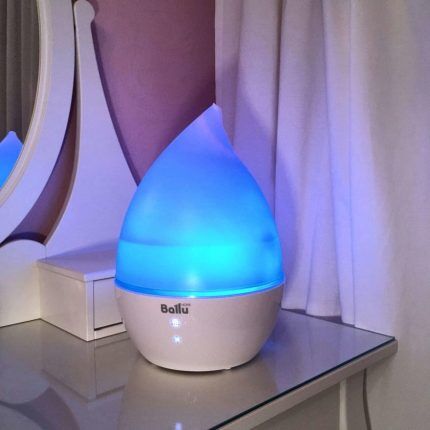
To prevent such negative action humidifier operation on the children's nervous system, you need to turn on the humidifier only when the child is not in the room. In this case, when he arrives, the room will have a normal microclimate, but any irritating factors will disappear.
Why is a steam humidifier harmful?
Using a steam humidifier can cause your child to get a thermal burn from the hot steam coming out of the device. To prevent this from happening, the device should be installed in a hard-to-reach place (on a cabinet or behind a fence) or use an ultrasonic humidifier that does not emit steam.
Also, steam humidifiers that do not have a built-in hygrostat can lead to increased humidity in the room, and this, in turn, can cause a sore throat.
But the occurrence of sore throat or tonsillitis becomes possible only if the relative humidity in the room rises to 80%. Only then, due to an excess of moisture in the air, mucus begins to accumulate in the lungs and bronchi, forming a favorable environment for the proliferation of bacteria.
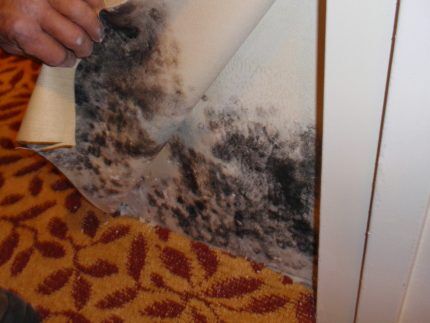
However, achieving this level of humidity is extremely difficult. During the cold season, due to actively working batteries, the humidity indicator rarely rises above 35% (usually lower). Those. Even the most powerful humidifier will not be able to raise this value to 80%.
Dangers of using an ultrasonic humidifier
In ultrasonic humidifiers, the filters that retain various impurities of minerals in the water periodically break down. Because of this, a thin layer of white salt coating may appear on furniture and appliances. The same plaque appears when using an ultrasonic humidifier without a filter.
Mineral salts settling in the room become an excellent breeding ground for bacteria.Moreover, these salts not only settle on interior items, microscopic particles of minerals are also contained in the air, which is inhaled by all those who are in the room.
But this problem can be solved if you use distilled water sold in stores or water purified in household filters for the humidifier. Do not pour tap water into the humidifier.
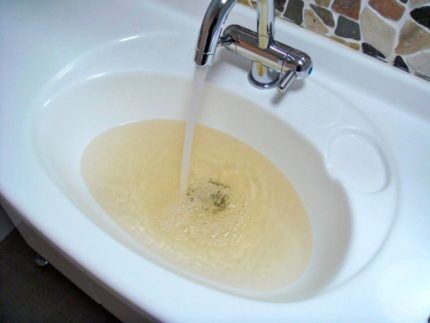
Some people are wary of placing ultrasound devices in a home with small children. This is due to the fact that the effect of ultrasound on the human body has not yet been fully studied.
In fact, this effect can be associated with tissue stimulation and the local thermal effect that ultrasound can have on individual human organs. Mild stimulation with ultrasonic waves improves blood circulation and metabolic processes.
However, prolonged and intense exposure to ultrasound can destroy body cells and lead to:
- baldness;
- increase in ROE indicators;
- hemolysis;
- destruction of nerve cells (in children the detrimental effect on the central nervous system becomes especially noticeable);
- pathologies of the skeletal system, etc.
But certified humidifiers use a wave frequency of 5 MHz. Ultrasonic waves with a similar frequency are safe for health. They do not act on a person, but on a membrane moistened with water.
If, after purchasing and installing a humidifier, your child has problems sleeping, his appetite has decreased, he has become apathetic, and timid, then you need to check the device. Perhaps the problem lies there.
Cheap and low-quality air humidifiers of dubious production that do not have the necessary certificates can use a different wave frequency and a different operating principle, and therefore have a detrimental effect on the child’s health.

Those. the likelihood of a humidifier having a negative impact on the body directly depends on the quality of the device. If you don’t save money and choose devices from trusted manufacturers, no problems will arise. The best brands of humidifiers are Vitek, Scarlett, Sharp, Electrolux, Polaris and Philips.
How to reduce the negative effects of a humidifier
In most cases, harm from the use of household humidifiers is associated with violation of safety regulations, errors in the operation of equipment and incorrect choice of device.
When purchasing a humidifier you should consider:
- area of the room (this parameter determines exactly what volume of the tank the device should have);
- noise level during operation;
- handling characteristics;
- the presence of additional functions (for example, humidifiers with an air purification function help eliminate various allergens from the home and are suitable for families with allergy sufferers);
- energy consumption parameters.
However, it is not recommended to keep the humidifier on all the time. Dr. Komarovsky advises turning on the device only when the air humidity drops below 50%.

The water in the device should be changed once a day or every time the unit is turned on. You cannot use the same filter for more than 30-40 days. Typically, the manufacturer indicates the approximate service life of one filter in the accompanying documents for the device.
In addition, you need to pay attention to other parameters of the microclimate in the room. When the humidifier is actively operating, batteries and other heating devices should not operate at full capacity.
High air temperatures in the home together with high humidity can create a “tropical” effect, making it uncomfortable to be at home.
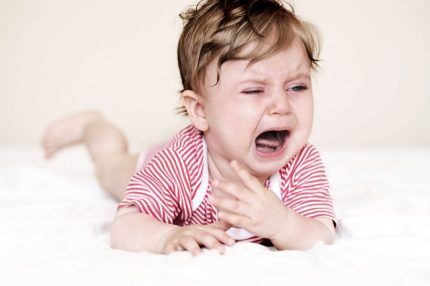
To reduce the likelihood of this effect occurring, it is recommended to reduce the heating of heating devices. Conventional cast iron batteries in an apartment can be covered with a special casing or screen. It is also worth ventilating the room more often.
Conclusions and useful video on the topic
The benefits and harms of an air humidifier depend on its technical characteristics, manufacturer’s brand and quality of workmanship. If you choose the right unit based on the parameters of the room, then any problems with its negative impact will not arise.
You just need to keep small children away from the device, clean the device in a timely manner and turn it on only when it is really necessary. You can see how a humidifier affects a child’s well-being in the following video:
If you pay more attention to the microclimate in the room and monitor the condition of the air humidifiers, your child will get sick much less. His sleep and appetite will improve, and attentiveness will also increase.An air humidifier, of course, will not save you from all diseases, but it will help improve the quality of life for many families with children, so purchasing it is advisable and justified.
Tell us whether you experienced positive or negative effects from using a humidifier. Share your own impressions and operational details. Leave comments, ask questions, post photos, please, in the form below.

